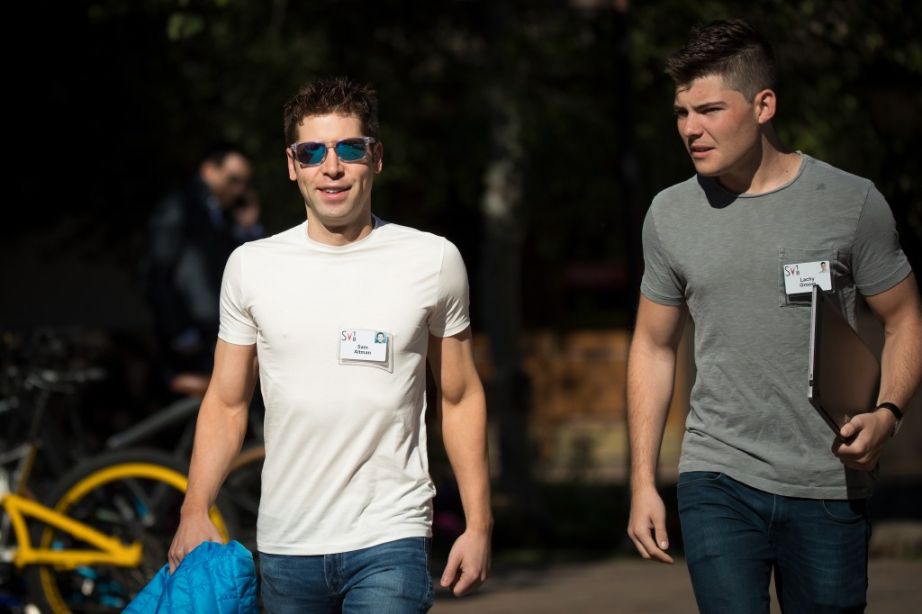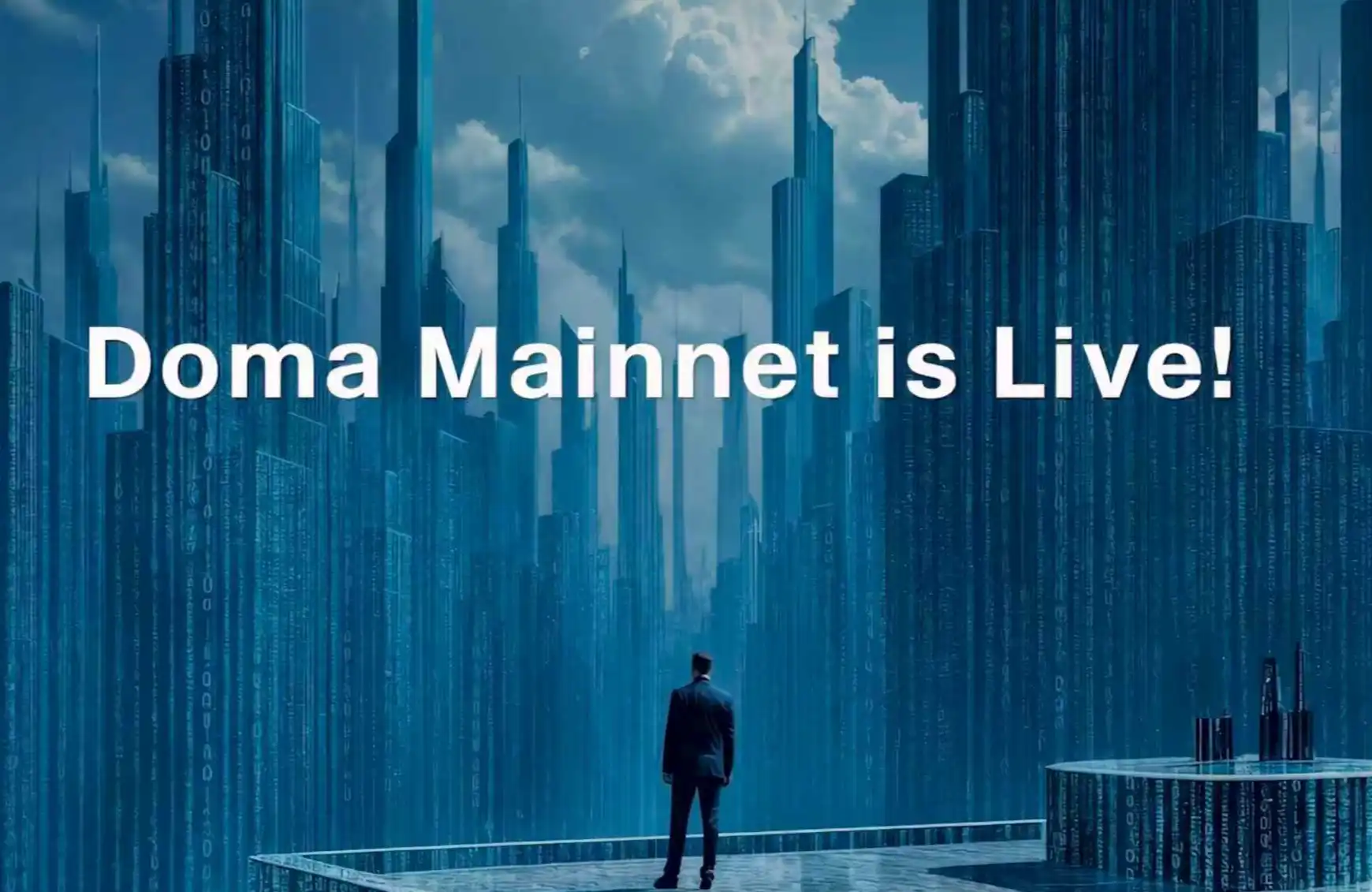Putting Aside "Altman's Predecessor," Just How Crazy Is Lachy Groom's Legendary Life?
Don’t just focus on labels like “Sam Altman’s ex-boyfriend” or “victim of a major heist”! Graduating high school and venturing straight to Silicon Valley, Lachy Groom’s life story is truly hardcore and inspiring.
Don’t just focus on the labels “Sam Altman’s ex-boyfriend” or “robbery victim”! Graduating high school and venturing into Silicon Valley, Lachy Groom’s life is truly a hardcore success story.
Written by: KarenZ, Foresight News
When a $4.4 million mansion in San Francisco was robbed by an armed thief disguised as a courier, and $11 million worth of cryptocurrency was stolen, the focus of this bizarre case was not only the skillful robber, but also the homeowner, Lachy Groom, who unexpectedly became a hot topic of public discussion.
According to the New York Post, citing police sources and people familiar with Sam Altman’s past relationships, an armed robber disguised as a deliveryman rang the doorbell of the residence. The direct victim at home during the robbery was Joshua—Lachy Groom’s roommate and business partner. The robber tricked him into opening the door under the pretense of signing for a package and borrowing a pen, then pulled out a gun to take control.
The following 90 minutes were a nightmare: Joshua was bound with tape, beaten, and on the phone, an accomplice recited his personal information for extortion. In the end, the robber forced Joshua to operate and empty his cryptocurrency wallet, ultimately stealing about $11 million worth of Ethereum and Bitcoin, as well as his phone and laptop.
This case instantly exploded in public opinion due to the identity of the homeowner—Sam Altman’s ex-boyfriend. The New York Post reported that property records show Lachy Groom bought the house on Dorland Street from Sam Altman’s brother for $1.8 million in 2021, and he was once a close partner of the ChatGPT creator.
Although news headlines define Lachy Groom with the gossip-laden label “ChatGPT boss Sam Altman’s ex-boyfriend,” if you think Lachy Groom is just “the man who once stood behind Altman,” you’re sorely mistaken.

A photo of Sam Altman and Lachy Groom posted on Facebook in 2014.

The two attended the Allen & Company Sun Valley Conference in Idaho in 2018, source: Getty Images
Putting aside the gossip and the unfortunate robbery, if you look at Lachy Groom’s resume, you’ll find: even without Sam Altman’s “halo,” his life story is enough to make 99% of entrepreneurs “read on their knees.”
Prodigy, former Stripe executive, top investor, Stripe’s 30th employee, and co-founder of AI robotics company Physical Intelligence—these are all labels for this 31-year-old Australian. He also made heavy bets on Figma, Notion, and Ramp when they were still unknown.
Today, using this “robbery” as a starting point, let’s dig into the story of this “talent hunter” from Perth, Australia.
Starting in a Small Australian Town: Didn’t Want to Study, Just Wanted to Make Money
Born in Perth, Australia, Lachy Groom clearly followed the “model child” script.
According to reports by The West Australian and SmartCompany in 2012, Lachy Groom was a bona fide “teen geek.”
- Started at age 10: His grandfather taught him web programming languages HTML and CSS, and he became obsessed with coding.
- From ages 13 to 17, he founded and sold three companies: PSDtoWP, PAGGStack.com, and iPadCaseFinder.com.
- Lachy Groom’s fourth startup, Cardnap, allowed users to search for discounted gift cards and resell their own gift cards.
In an interview with The West Australian, Lachy Groom’s father, Geoff Groom, recalled that Lachy was entrepreneurial from a young age, earning money by walking dogs for others, setting up a lemonade stand with friends, and always finding ways to make pocket money and spot business opportunities.
After graduating from high school, Lachy Groom was very clear-headed—he didn’t think traditional university education could teach him what he wanted. So, this teenager made a life-changing decision: go to the United States, go to San Francisco, and get as close as possible to the heart of the internet.
Why? Because at 17, Lachy saw through a reality: Australia’s startup ecosystem couldn’t compare to San Francisco and Silicon Valley. More importantly, he discovered a harsh business truth: “Valuations in the US are much higher.”
Joining the Stripe Mafia Elite Circle
After arriving in the US, Lachy Groom didn’t rush to become a VC, but instead joined a then-growing company—Stripe. As it turned out, this was not just a job, but a ticket to the center of power in Silicon Valley.
According to Lachy Groom’s LinkedIn profile, he was Stripe’s 30th employee, initially working on growth, then managing global business expansion and operations teams, participating in Stripe’s expansion in Singapore, Hong Kong, and New Zealand, and later leading Stripe’s card issuing business.
During his seven years at Stripe (2012-2018), Lachy Groom witnessed the company’s transformation into a “Silicon Valley giant.” This was not just work experience, but a hands-on MBA course on “how to build scalable products in the internet age.”
This experience gave him three invaluable assets:
1. Financial freedom.
2. Accumulated rich operational experience at Stripe, gaining a deep understanding of how B2B SaaS can grow from zero to a hundred-billion scale.
3. Thanks to his outstanding performance at Stripe, Lachy Groom later became an important member of the “Stripe Mafia.” Members of this circle went on to occupy half of Silicon Valley’s venture capital scene.
Turning to Solo Investor
In 2018, Lachy Groom made a bold decision to “go solo” and leave Stripe.
He didn’t join a big-name fund but instead started as a Solo Capitalist, turning to full-time angel investing, and his investment style was completely different from most angel investors.
Hustle Fund once analyzed his “approach”: Most angel investors “cast a wide net” (invest in 100 companies, $5,000 each, and pray a few succeed), while Groom is a “sniper”—when he’s confident, he writes big checks of $100,000 to $500,000 and makes decisions quickly.
Lachy Groom’s investment strategy can be summed up in one sentence: invest in tools that users or developers will love spontaneously, not software they are forced to use. Core investment principles include a bottom-up adoption model, solving real workflow problems, and making cautious yet meaningful investments.
According to PitchBook statistics, Lachy Groom has made 204 investments, with a portfolio of 122 companies, currently managing investments through multiple funds, and is known for high hit rates, leading rounds, and heavy bets on B2B/SaaS. Check out some of his “legendary projects”:
- Design tool Figma: Lachy Groom invested in Figma’s seed round in 2018, when its valuation was $94 million. On September 15, 2022, Adobe announced it would acquire Figma for about $20 billion, but the deal was terminated in 2023. Figma then went public on the New York Stock Exchange on July 31, 2025, with its market cap soaring to $67.6 billion on the first day, now falling back to $17.5 billion. Based on the current valuation, Lachy Groom’s investment yielded a 185x return.
- Note-taking software Notion: In 2019, Lachy Groom was one of the lead investors in Notion, when its valuation was $800 million. Two years later (2021), Notion’s valuation quickly reached $10 billion. According to CNBC’s report in September this year, Notion’s annualized revenue surpassed $500 million.
- Cross-border fintech company Ramp: Lachy Groom participated in Ramp’s seed round.
- Talent management platform Lattice: Lachy Groom invested early when the company was still exploring product-market fit (around 2016-2017).
We can see Lachy Groom’s investment logic: invest in products that reshape the way people work, and in young people who, like him, are eager to change the world.
Next Stop: Giving Robots a “Brain”
After making enough money from software, Lachy Groom set his sights on a more hardcore field.
With the advent of the AI era, Lachy Groom began to ponder a bigger question: if the boundaries between AI and hardware blur, where will the next internet-scale innovation happen? The answer: bringing general AI into the physical world.
In March 2024, no longer content to invest from behind the scenes, he teamed up with several top scientists to found the robotics company Physical Intelligence (Pi).
The co-founding team of Physical Intelligence is truly impressive:
- Karol Hausman: Former senior research scientist at Google DeepMind and part-time professor at Stanford University.
- Chelsea Finn: Former member of the Google Brain team, currently an assistant professor in Stanford’s Computer Science and Electrical Engineering departments.
- Adnan Esmail: Worked at Tesla for four years, and served as chief architect and SVP of engineering at US defense tech company Anduril Industries.
- Brian Ichter: Former research scientist at Google DeepMind and Google Brain.
The company’s goal sounds like science fiction: to develop a universal foundational model as the “brain” for robots, so that robots are no longer just machines that screw bolts, but intelligent agents that can adapt to complex environments like humans. Lachy Groom has said that Physical Intelligence’s uniqueness lies in its aim to develop software that can be applied to various robot hardware.
The capital markets are also going crazy for this “dream team.” In the month it was founded, Physical Intelligence completed a $70 million seed round, led by Thrive Capital, with Khosla Ventures, Lux Capital, OpenAI and Sequoia Capital participating.
Just seven months later, in November 2024, Physical Intelligence completed another $400 million funding round, Amazon founder Jeff Bezos, venture capital firms Thrive Capital and Lux Capital led the round, with other investors including OpenAI, Redpoint Ventures, and Bond.
Just a week ago (November 21), Physical Intelligence completed another $600 million funding round, bringing the company’s valuation to $5.6 billion. Alphabet’s independent growth fund CapitalG led this round, with existing investors Lux Capital, Thrive Capital, and Jeff Bezos continuing to participate.
Summary
From a boy in Perth, Australia, who wrote code in elementary school, to joining Stripe’s core team without attending college, and now holding huge checks in one hand and building AI robots in the other as a Silicon Valley heavyweight—Lachy Groom has proven with his strength that his life story is a thousand times more exciting than the “Altman’s ex-boyfriend” tabloid label.
References:
Disclaimer: The content of this article solely reflects the author's opinion and does not represent the platform in any capacity. This article is not intended to serve as a reference for making investment decisions.
You may also like
"Myth of the 'Crypto Treasury' Shattered? Stock and Token Prices Plummet, Forcing Companies to Sell Crypto Assets"
However, as a pioneer of the "crypto treasury," Strategy has chosen to increase its holdings against the trend.

MSTR may be removed from the MSCI index, sparking conflict as the "Crypto Little Deng" faces off against the "Wall Street Old Deng" in a dramatic showdown.
The cryptocurrency community is strongly pushing back, calling for a boycott of Wall Street institutions and even shorting JPMorgan. MicroStrategy's founder also insists that the company is operational in nature rather than a fund.

Another EOS scandal: community accuses the Foundation of running away with the funds
Big spending: Where has all the foundation's money gone?

Doma mainnet goes live, 36 million domain names can be used as tradable tokens
The world's first blockchain compliant with DNS standards enables the tokenization and trading of premium exclusive domain names.

